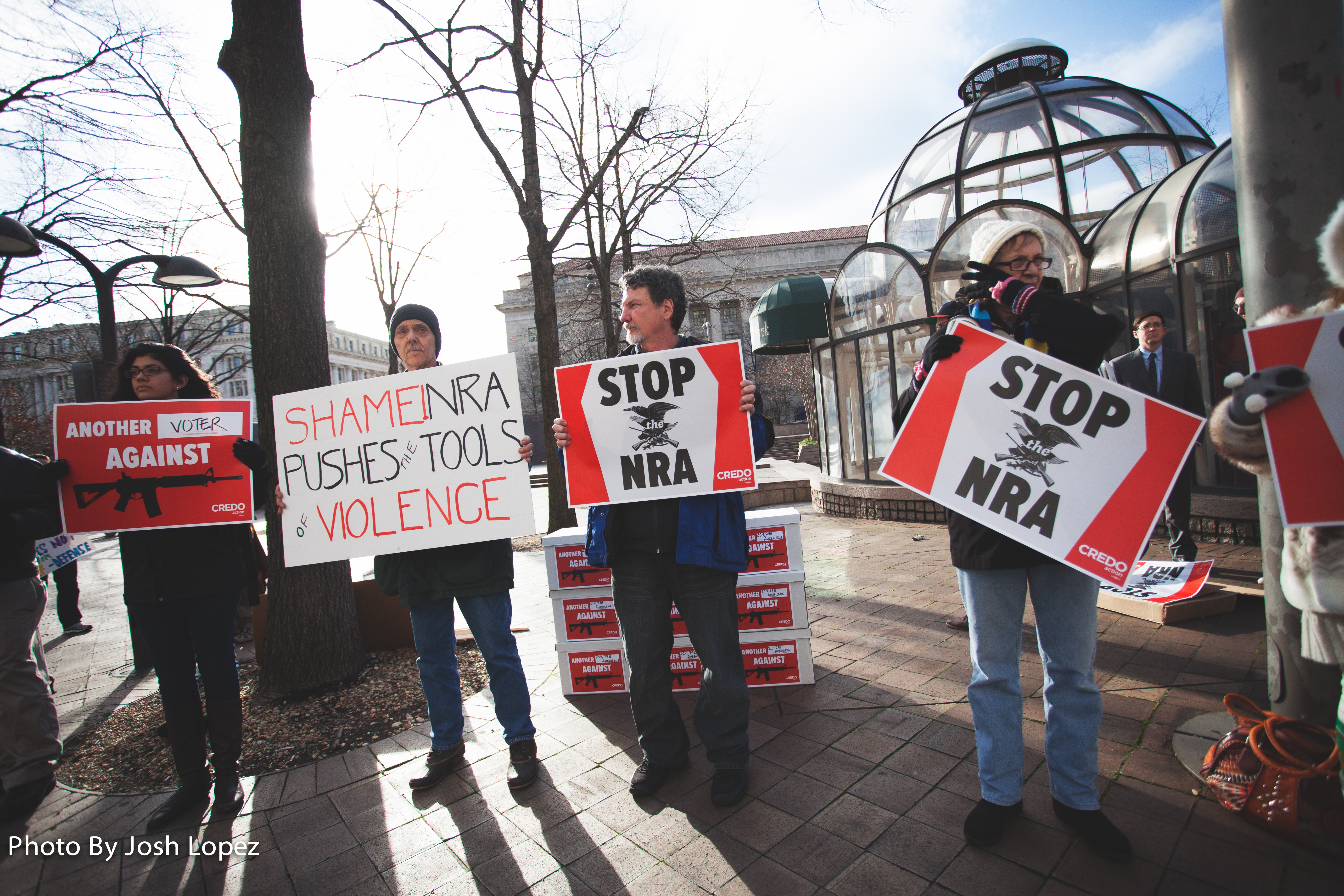The shooting at Umpqua Community College is not going to lead to gun regulations. Neither will the shootings of the five people killed in Florida and Maryland the following day, and neither will the ones that are undoubtedly soon to come. Fear not, arms-bearing, red-blooded Americans. Congress isn’t coming to take your guns — their hands are well tied, and the gun lobby knows how to make a vicious knot.
Over the past twenty years, the National Rifle Association (NRA) has not only made it unthinkable that gun legislation would get through Congress, but they’ve managed to stop debate on the subject all together. Following a 1996 study conducted by the Centers for Disease Control that showed the danger posed by private possession of firearms, the gun lobby kicked into action. After a failed attempt to completely eliminate the National Center for Injury Prevention and Control, Rep. Jay Dickey (R-AR), known as the NRA’s point man in Congress, forced an amendment through Congress that stripped from the Centers for Disease Control and Prevention’s (CDC) budget the exact amount that had been spent on gun research in the previous year. The amendment, which is still in effect today, put any hope for future gun control research under the guillotine: None of the funds made available for injury prevention and control at the CDC may be used to advocate or promote gun control.” According to its supporters, the ban was originally intended to prevent outright gun control advocacy, but for fear of political backlash, the CDC effectively stopped all gun violence-related research.
Facing the ever more frequent public outcry for more stringent regulations following these mass shootings, the gun lobby will do what they’ve always done: deepen their pockets.
Dickey has expressed regrets about spearheading the ban in the wake of the Oregon shootings, telling the Huffington Post “If we had somehow gotten the research going, we could have somehow found a solution to the gun violence without there being any restrictions on the Second Amendment.” He might be right; maybe somehow, the CDC would have been allowed to continue research into gun violence as a public health issue – one that kills tens of thousands of Americans annually – and would have been able to propose solutions regarding mental health or purchasing restrictions on firearms.
But even without Rep. Dickey acting as the legislative arm of the NRA, it’s unlikely that the CDC would’ve been allowed to continue their work — that’s simply not what the pro-gun groups would want. They’re worried that the findings of this kind of research would be exactly what any rational person would expect, and what studies conducted by independent organizations have already shown: that private ownership of guns drastically increases odds of death or injury. Unfortunately for the NRA, that’s the kind of information that could be used as a basis for new restrictions on gun ownership. And more unfortunately for the safety of Americans, these restrictions will likely never be realized.
Following the Newtown shoot in December 2012, Gun rights increased their spending on political lobbying by $9 million in 2013. Gun lobbies including the NRA, Gun Owners of America, and the National Association for Gun Rights (among others) have spent upwards of $15 million in recent years on lobbying efforts. By contrast, gun control groups average about $1 million. The $28 million the NRA spent during the 2014 cycle not only left gun control advocates in the dust; it ensured that any future mass shootings (such as the 226 that have occurred in 2015 alone) wouldn’t result in any significant legislation from Congress.
The success of lobbies in career politics on both sides of the aisle has managed to inextricably link the success of legislation to the success of campaign donations. We have perfected the art of money-as-speech, and it doesn’t look like things are going to change any time soon. Lobbies only work if there are people supporting them, and that support tends to be fierce and ongoing. Once we commit ourselves to an idea, no matter how valid or invalid our reasoning, we’re not very likely to be convinced to change our minds. Our goals for believing one thing over the other go beyond a desire for accuracy, and factual opposition to those beliefs can often only drive us further to the extreme.
From climate change deniers to anti-vaxers to the ‘birther’ movement, we see time and time again that no matter how much scientific evidence supports one side of an issue, it will have little to no effect on its diehard opposition. This is not to say that supporting the right to bear arms is an irrational or invalid belief to have, nor is it to discount the value on independence and personal liberty which many gun rights advocates turn to as a basis for their views. This is to say, however, that there is science behind the push for gun control. We can no longer legitimately argue that having more guns makes us safer, nor can we say that limiting access to firearms won’t reduce the rates of homicides or suicides we see every year. To decide how exactly we should be limiting access to guns—whether through buyback programs, limits on high-capacity magazines, or bans on assault weapons, to name a few options— requires more research: the type of research that Congress and its lobbies have decided to end for good.
There is rarely a clear answer when values and reality contradict each other. The values of freedom, liberty, and protection from a tyrannical government, which defenders of the second amendment are determined to protect, are in this instance running up against hard data, scientific evidence, and rising death tolls. At some point, one side will have to give, and it seems like Congress has already picked its winner.
Photo: Josh Lopez
